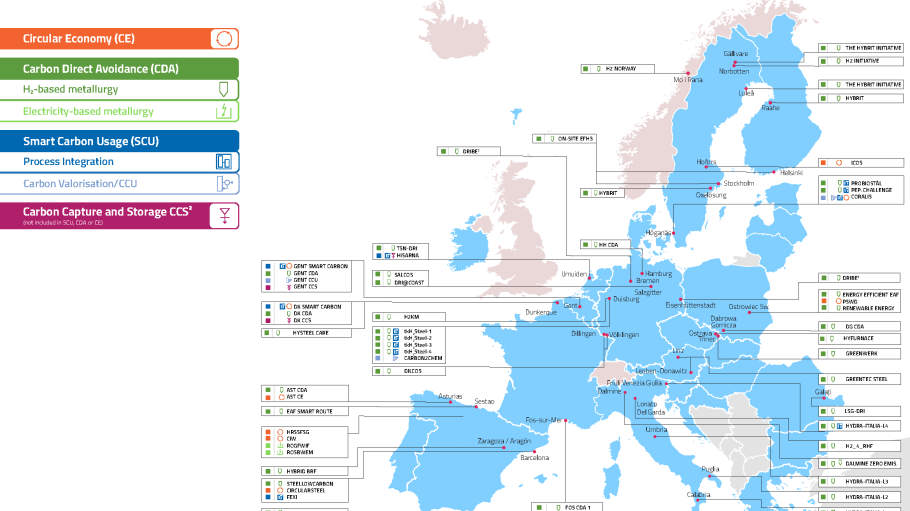EP vote on NZIA a step forward in boosting uptake of steel decarbonisation technologies, says EUROFER
Date
Sections

Brussels, 25 October 2023 – The decision by the European Parliament's Committee on Industry, Research and Energy (ITRE) to recognise all steel decarbonisation technologies as net-zero and introduce binding sustainability criteria for clean technologies in public procurement is a positive development for the decarbonisation of the steel sector. These new measures included in the Net Zero Industry Act (NZIA) can ensure faster implementation of EU steel decarbonisation projects at industrial scale. It is now essential to maintain the momentum towards a successful transition, says the European Steel Association.
“Steel companies have announced substantial investments in multiple EU member states, with groundbreaking low-carbon projects scheduled for as early as 2025 and 2026. Today’s vote brings the European steel industry one step closer to its net-zero target. Innovative processes, including hydrogen-based steelmaking and Carbon Capture, Utilisation and Storage, will now benefit from faster permitting procedures. At the same time, the introduction of sustainability criteria in all public procurement auctions for net-zero technologies will help establish much-needed lead markets for green products”, said Axel Eggert, Director General of the European Steel Association (EUROFER).
In fact, the provisions proposed by the ITRE Committee reaffirm the principle of technological neutrality and acknowledge the essential role of hydrogen-based, electricity-based and Carbon Capture, Utilisation and Storage (CCUS) technologies to achieve the EU climate targets. The ITRE report, however, underlines that CCUS can only work by developing a fully-fledged value chain approach, taking into consideration infrastructure, cross-border rules for transportation as well as standardisation.
Overall, the measures will lower the risk of delaying the transition due to lengthy and complex administrative procedures, while rewarding environmental benefits by supporting the use of low-carbon components and materials that come with a premium, such as steel, which is essential to many clean tech value chains from wind to EVs.
“The next steps will be paramount for providing our sector with the right conditions to make decarbonisation investments pay off. While lead markets can certainly help, we still need to secure enough financial incentives to level the playing field with our global competitors. The EU cannot risk lagging behind if we want to lead the clean tech race and ensure our strategic autonomy in a world subject to ever-increasing geopolitical risks”, stressed Mr. Eggert. “We stand ready to cooperate with the Parliament and the Council. It is essential that they work together to reach a swift compromise agreement boosting the EU industry’s decarbonisation efforts in this challenging journey”, he concluded.
-
